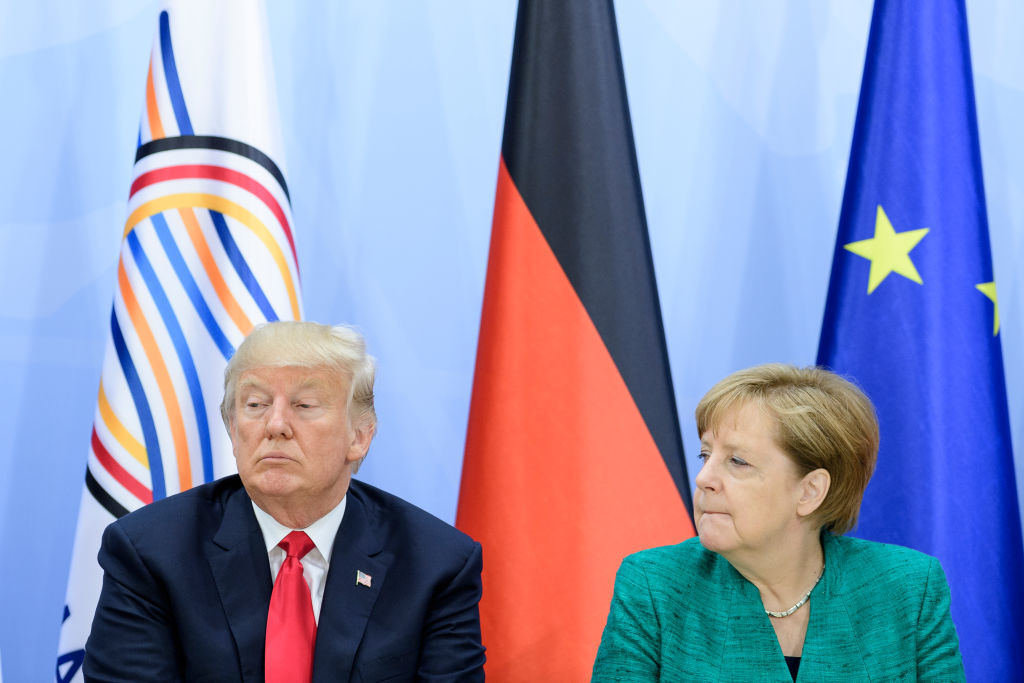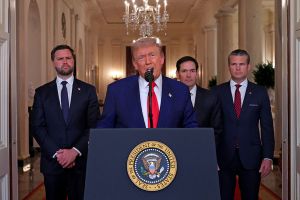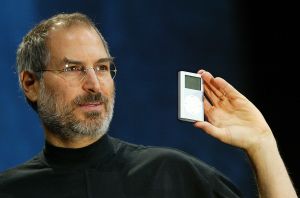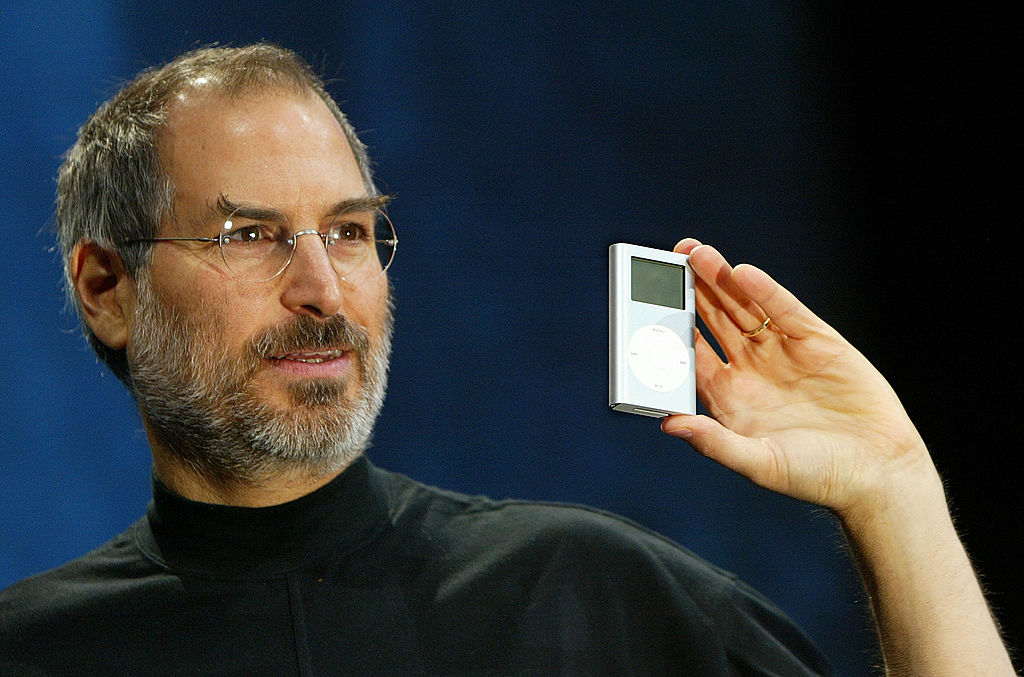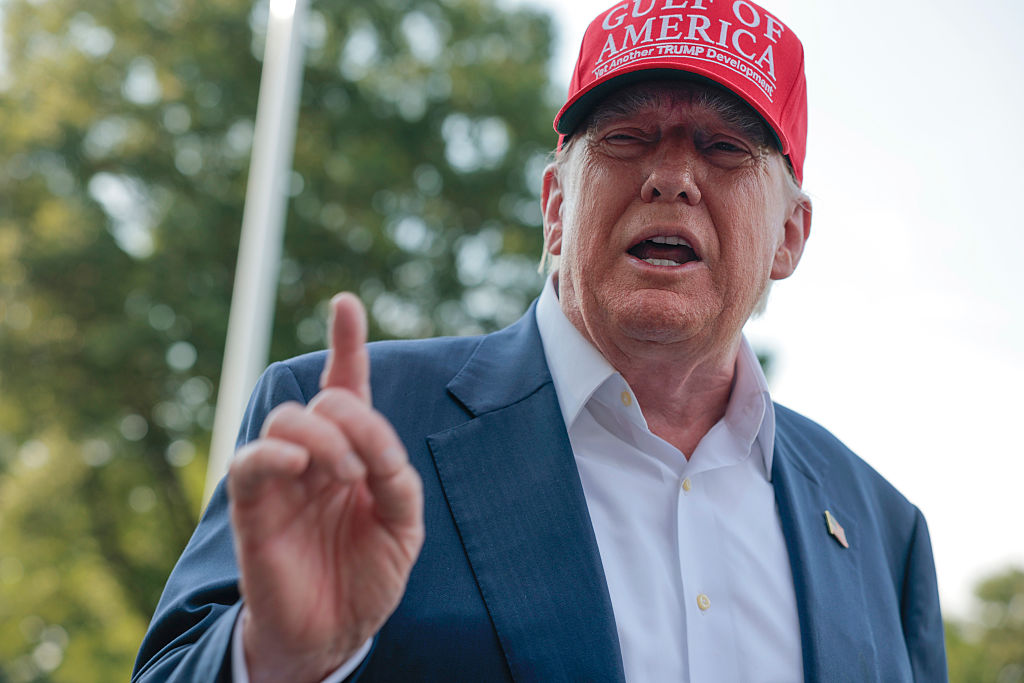For France and Germany, the contrast could scarcely be starker. For three days Emmanuel Macron was wooed and fêted by Donald Trump, treated to marching bands and banquets. Today, Angela Merkel made a brief two-and-a-half hour stop-off at the White House, then flew away again. So does this mean President Macron is Trump’s New Best Friend and Chancellor Merkel is just his sideman (or should that be sidewoman?)? As always, in international diplomacy, this is a question to which the answer is: well, yes and no.
Sure, the dramatic difference between these tête-à-têtes was no coincidence. Yes, Macron’s was a full state visit, Merkel’s was merely a working meeting, but the disparity is deeply symbolic, and the timing makes it even more so. Trump adores Macron, Trump dislikes Merkel – right or wrong, that’ll be the way it plays on TV, on both sides of the Atlantic. Merkel doesn’t set much store by ceremony, but she’s only human. Coming so soon after the Trump-Macron love-in, her perfunctory visit can’t help but be seen as a rebuff.
No one can pretend that Trump and Merkel have much in common. Their joint appearance at the White House a year ago was excruciating. Merkel wore a mask of horrified bemusement. Trump even appeared to refuse her invitation to shake hands. Trump’s minions denied this, saying he simply hadn’t heard her, but whether he was rude or merely gauche it spoke volumes about the chilly atmosphere at this meeting all the same. Germany’s biggest-selling newspaper, Bild, claimed that during that interminable half hour press conference, Trump never met Merkel’s eye.
Clearly, Trump and Merkel have a lot to disagree about. Germany’s dark history of demagoguery has left German politicians with a visceral distaste for strident leaders of any kind. However it’s not just Trump’s personality but his policies which makes Merkel bristle. Merkel desperately wants to avoid a trade war between Europe and the US. A free trader, not a protectionist, she believes everyone loses in such a battle. Trump’s steel and aluminium tariffs are anathema to her economic philosophy. EU companies are currently exempted from these tariffs, but only until 1st May. Merkel would dearly like to make this exemption permanent. Yet with such poor personal chemistry between them, her chances of persuading Trump seem slim.
Contrary to popular misconception Merkel has always been an ardent Americanophile. When the Berlin Wall came down, propelling her into German politics, she looked to America as much as Western Europe for inspiration. Travelling to America for the first time was one of the most exciting experiences of her life. ‘What was I so enthusiastic about? The American Dream,’ she said. ‘The opportunity for everyone to succeed, to get somewhere by their own efforts.’ She had a natural rapport with Obama. She had a good relationship with George W. Bush. To be on such poor terms with a US President is something that will wound her deeply.
Yet in international diplomacy, is personal chemistry really all it’s cracked up to be? Britons basked in the feelgood glow of Margaret Thatcher’s friendship with Ronald Reagan, but when it came to foreign policy issues like Grenada, it didn’t seem to cut much ice. Ditto Tony Blair and George W. Bush in Iraq. Trump would be the first to admit that being pally isn’t always the best way to get a good deal. Merkel’s matter-of-fact approach may yet win more concessions than Macron’s pomp and circumstance. You can’t picture Trump daring to flick imaginary dandruff off Merkel’s collar.
Trump may see an opportunity to drive a wedge between France and Germany, but his contrasting approach to its two leaders could suit both the French and the Germans very well. As core members of the European Union, with the same currency, the French and German economies are becoming ever more closely intertwined – and they’ll soon become even closer, if Macron can persuade Merkel to support his plans for deeper European integration. Macron can play the nice cop while Merkel plays the nasty cop. Whatever concessions they each win from Trump will be largely shared.
Trump may see France and Germany as two old foes whom he can play off against each other, but the Franco-German alliance trumps any special relationship with the United States. Good relations between America and France is good news for Germany – bad relations between America and Germany is bad news for France. Macron was the guest of honour at the White House last week and Merkel was the poor relation, but in the long run their mutual objectives are very much the same.



